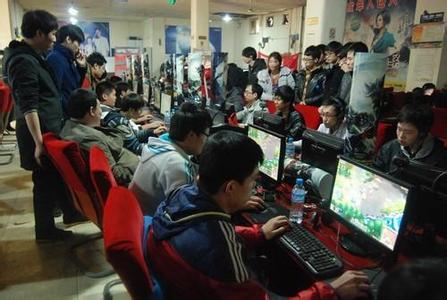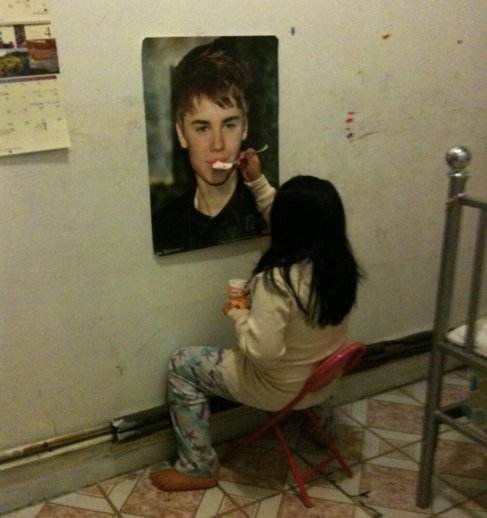Internet Culture and Netizens in China
It’s fair to say that China, more than any other country in the world, has fully embraced the wonders of the internet. Nowhere else in the world do I know where you can order a cup of tea on a ‘mini-app’ on messenger app, WeChat and have it delivered free of charge 30 minutes later. I can’t think of anywhere that has aced the art of e-commerce more than Taobao, the website and app where you can get anything from your standard cosmetics and kitchen appliances to hiring a woman who will come to your restaurant and peel your hairy crab (for a tip she’ll even feed them to you). China has 710 million netizens, which is more than half the population, so it’s hardly surprising that they are prolific commentators, even going as far as to have running ‘discussions’ whilst watching TV shows online.
To learn about some of the most popular Chinese websites, take a look at our article Top 10 Popular Chinese Websites.
Chinese Mobile Users

In recent years, China has seen a shift from computers to mobile devices, especially, since Tencent, the company behind QQ and WeChat began taking over the world with app development. Most Chinese internet users are watching movies, listening to music and gaming, unlike the western market, who mostly use their mobile phones for productivity and work.
Companies like Tencent cater to the Chinese market allowing their users to do EVERYTHING from within one app. WeChat allows you to chat with friends via text, voice and video, play games, post your pictures, not to mention pay for products online and in-store using WeChat Wallet.
The most recent addition to WeChat is the ‘Mini Program’, that allows you to pin a ‘mini-app’ to the top of your chat, so that there’s no need to even close WeChat to order food, check when the bus will arrive or see the best restaurant in the area.
Gaming in China

Although games consoles such as Microsoft’s Xbox were, until recently, not available to buy in China, gaming is still a huge part of Chinese culture for many young people.
For many, owning a computer is still fairly unattainable, which is why China has become inundated with internet cafes 网吧 (wǎng ba), predominantly full of young men eating 方便面 (fāng biàn miàn) and chain-smoking. With fast speed connections, these internet cafes have allowed gamers the opportunity to play online for an hourly rate 24 hours a day. There have been many stories within the last few years about the ‘addictive’ effects gaming has had on teenagers and young people especially in China, sometimes even resulting in death, which in turn has seen the introduction of unconventional Game Addiction Rehab Camps.
Since most Chinese gamers have never gotten their hands on games that are popular in the west, such as first person shoot-em-up Call of Duty, Chinese gaming companies have been able to saturate the market with their own games. Chinese gamers are mostly playing real-time strategy games or MMORPGs (Massive Multiplayer Online Role Playing Games), like World of Warcraft. Even if other game genres were available to play, they wouldn’t be free, unlike the RPGs available online in China, and it seems they might just find the likes of Fallout 4 and Halo to be extremely boring…
Internet Culture, Gaming and Slang Vocabulary
Below are several lists of vocabulary words associated with Chinese internet culture and gaming. Plus some Chinese internet slang words that are both interesting and amusing!
Games and Consoles
游戏 (yóu xì) Game
游戏机 (yóu xì jī) Games Console
魔兽世界 (mó shòu shì jiè) World of Warcraft (WOW)
塞尔达传说 (sài ěr dá chuán shuō) Legend of Zelda
我的世界 (wǒ de shì jiè) Minecraft
英雄联盟 (yīng xióng lián méng) League of Legends (LOL)
Basic Internet Words
网络 (wǎng luò) Internet
网站 (wǎng zhàn) Website
博客 (bó kè) Blog
论坛 (lùn tán) Forum
Chinese Social Media Slang Terms
Chinese Internet User Names

网民 (wǎng mín) Netizen (used by the media to describe users of the internet)
五毛党 (wǔ máo dǎng) Fifty Cent Army (a person who uses to internet for government propaganda)
网特 (wǎng tè) agent provocateur (on internet forums)
键盘侠 (jiàn pán xiá) Keyboard ‘Hero’ – someone who uses their keyboard to create a ‘persona’ to troll sites, but in real life they’re no-one.
逗比 (dòu bi) Funny man – Someone is funny, silly and a little cute
吃货 (chī huò) Food aficionado/foodie

备胎 (bèi tāi) ‘Spare wheel’ – a guy or girl who is always available as a ‘fallback’
照骗 (zhào piàn) ‘Photo liar’ – Someone whose social media photos are deceiving (due to photoshopping etc)
壕 (háo) ‘trench’ – Someone who is rich. Originally derived from 土豪 (tǔ háo) meaning nouveau riche
直男癌 (zhí nán ái) ‘Straight man cancer’ – Chauvinist
白莲花 (bái lián huā) ‘White lotus’ – someone who is pure in appearance, but opposite inside.
圣母 (shèng mǔ) ‘Goddess’ – Originally a woman who would sacrifice herself to protect others. Now commonly used to describe someone who sacrifices others to ‘save people’, or be generous at the expense of others to implement his / her moral superiority or purpose.
单身狗 (dān shēn gǒu) ‘Single dog’ – a person who is single
秀恩爱 (xiù ēn ài) A couple who show off their love in front of others or on social media
喂狗粮 (wèi gǒu liáng) ‘To feed dog food’ – A couple show love in front of single people
爱豆 (ài dòu) Idol
黑粉 (hēi fěn) ‘Black fans’ (Internet) Troll (The character 粉 plays on the English word, ‘fan’.
路人 (lù rén) Passerby – People who neither like nor dislike a celebrity but post a comment at random.
水军 (shuǐ jūn) ‘Navy’ – People create ‘heat’ for a specific celebrity and control the direction of the conversation. Similar to paying for ‘LIKES’ on Facebook. 水 (shuǐ) previously had a negative meaning, which was to talk about irrelevant topics in forums.

脑残粉 (nǎo cán fěn) Fanboy / fangirl – Obsessive about one topic, and can sometimes make comments which may affect their ‘idol’ in a negative way
僵尸粉 (jiāng shī fěn) Zombie Fans – Used on Weibo to describe fake ‘followers’ bought by users. (Like FB likes etc)
粉转黑 (fěn zhuǎn hēi) ‘Fan turned black’ – Someone who turns their back on their ‘idol’.
Similar: 路人转粉 (lù rén zhuǎn fěn) ‘Passerby turned fan’, 黑转粉 (hēi zhuǎn fěn) ‘Black turned fan’
Internet Chengyu
The following commonly used chengyu now use English words with a similar pronunciation to replace the Chinese characters, whilst retaining the original meaning.
无fuck可说 (wú fuck kě shuō) = 无话可说 (wú huà kě shuō): I have nothing to say (speechless)
Book思议 (Book sī yì) = 不可思议 (bù kě sī yì): Inconceivable
坚持不shit (jiān chí bú shit) = 坚持不懈 (jiān chí bú xiè): To persevere
Liar利齿 (liar lì chǐ) = 伶牙俐齿 (líng yá lì chǐ): Eloquent, to have the gift of the gab
心如dog (xīn rú dog) = 心如刀割 (xīn rú dāo gē): Broken-hearted
Simple Chinese Internet Slang
搞事情 (gǎo shì qíng) To ask for trouble
没毛病 (méi máo bìng) No problem

什么鬼 (shén me guǐ) What?!
嘿嘿嘿 (hēi hēi hēi) / 啪啪啪 (pā pā pā) To have sex
撩妹 (liáo mèi) To chase a girl
撩汉 (liáo hàn) To chase a man
颜值 (yán zhí) – ‘face score’ – To give someone’s face a score, for example 高颜值 is beautiful or ‘high scoring face’.
颜控 (yán kòng) – fan of a high scoring face
怼 (duì) To attack, hit, poke, fuck
怂 (sǒng) Cowardly, useless
浪 (làng) to go and play
老司机 (lǎo sī jī) ‘Old driver’ – Someone who has lots of porn resources and knowledge of sex. Originally meant ‘master’ of something.
开车 (kāi chē) ‘To drive’ – A person who makes sexual innuendo and shares porn sites.
翻车 (fān chē) ‘Car turned over’ – Porn site has been deleted
Chinese Gaming Vocabulary
萌新 (méng xīn) ‘cute newbie’ – a newcomer (commonly used in games)
稳 (wěn) ’stable’ – Used to tell others to be stable while game playing)
开黑 (kāi hēi) Get a group together to play games (in-game)
膨胀 (péng zhàng) ‘To be selfish’ – A person who jumps into a game too quickly and aggressively, often resulting in a quick death
Learn more internet slang in our article on Chinese Internet Slang and if you’re interested in learning about computer vocabulary, check our Stop being a Noob and Learn Computer Words in Chinese vocabulary list.
